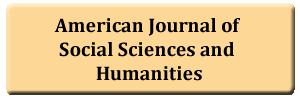Mathematics Learning: Misconceptions, Problems and Methods of Making Mathematics Learning Fun
DOI:
https://doi.org/10.55284/ajel.v7i2.719Keywords:
Mindset, Mathematics learning fun, Mathematics learning problem, Mathematics learning, Misconceptions.Abstract
This article is related to the fallacy regarding learning mathematics in the current situation of school-level education. The article aims to dig out the meaning of learning mathematics, misconceptions, problems, and the particular ways of making mathematics learning fun in basic level school mathematics. The study is mainly based on the critical review of different related literature. Also, the in-depth interview with the basic level school teachers regarding the problem in learning mathematics, misconceptions about learning mathematics, and the approaches used to make mathematics learning effective and interesting were used to make the result more appropriate. Thus, the study utilized the systematic-descriptive approach combining the result of the different kinds of related literature and the concerned teachers' views and their experiences about mathematics learning problems, misconceptions, and ways to make mathematics learning enjoyable. This article presents the prevailing context of mathematics learning, major misconceptions about mathematics learning, problems of mathematics learning, and ways to make mathematics learning fun. It ascertains the major mathematics learning problems based on three aspects curriculum, teachers, and the students. Also, it helps to deal with misconceptions about learning mathematics by utilizing the most effective intervention techniques.



